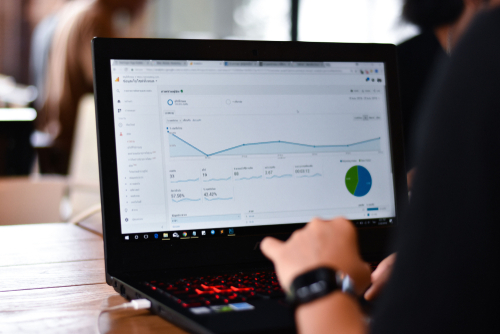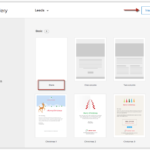Search Engine Optimization Power Tips to Get Your Website Ranking
You probably have heard a couple of businesses take off just by applying SEO techniques. According to Bill Raup, a Chester County SEO expert, if your website is not ranking in the first page of search engine results, you are losing business.
Search engine optimization is indeed a complicated beast. It has grown over the years, and even some experts are having a hard time catching up with it. It’s continually evolving, and what you know a year ago may not be applicable now.
To address this, here are some power tips on how you can improve your website’s ranking no matter what algorithm change happens.
1. Create high-quality content
You may have been hearing the famous saying “content is king” all over the Internet. If you want your website to take off and maintain a course that’s only heading upwards, you need to pledge allegiance to this saying.
Think of your site content as a book. The book cover, the name of the publisher, or even the award stamped shamelessly on won’t matter unless you have a good story to back it up and can provide additional value to your readers.
Here are tips to help you produce quality content consistently:
- Answer your readers’ questions – As mentioned, always provide value to your readers. It is by getting to know your target audience that you’ll be able to create good content.
- Avoid overselling – Content marketing will always be connected to audience conversion, but be wary of overselling. Instead, learn to gain their confidence and conversion will happen naturally.
- Know their language – Go where your readers are and find out what they’re talking about and how they’re talking about it. It’ll help you make content that is relevant and actionable.
- Go the extra mile – Provide more than what you promised. Let your readers know that your content is well researched and offers vital information.
Google no longer analyzes your content by solely looking at the keywords or links, although those are still a big part of the ranking process. So, start shifting your focus towards building content that is of high quality.
2. Update and produce content consistently
You know what also affects your content’s relevance? It’s frequency. The more you content you churn out for your website, the stronger your SEO will be.
Patience is vital when optimizing your website for search engines. Create a routine to help you publish content on a regular basis and make sure that you’re producing quality articles.
3. Proper keyword placement
SEO has drastically changed over the years, but keywords will always play a massive role in optimization. But what you need to change is your behavior towards keyword placement.
Observe the following when placing keywords on your website:
- Your chosen keyword should be present in the article title and headers.
- The keyword should be placed in the first paragraph or first 25 words of a page.
- Use synonyms or variations of your keyword to avoid being penalized for keyword stuffing.
- Place keywords as naturally as you can.
- Put the keyword in the meta description. It’s true that Google no longer crawls the meta description, but it’s still a strategy that increases click-through rates.
4. Consider page load speed
Load speed of a website is considered when ranking pages. Even a fraction of a second will matter for some readers. Someone leaving your site due to page load speed will hurt your bounce rate, page views, and ultimately, your SEO ranking. Remove all the elements that may slow down your website.
Here are some ways to speed up your website:
- Optimize your images – Images are an essential part of any website. It helps make it visually appealing and interesting. It’s apparent that you need to use high-resolution photos, but you have to make sure that images are optimized and compressed without losing quality.
- Simplicity goes a long way – Remove unnecessary widgets from the sidebar, deactivate unused plugins, and find a website design that’s easy on the eyes. A simple website increases user experience.
- Leverage browser caching – Your returning visitors will appreciate this and will engage them more in the future.
5. Guest Posting
Surely, this is a topic that has piqued your interest in one way or another but you never really got around to doing it. Guest posting has three main goals, namely:
- Become an authority figure over a particular niche
- Receive exposure and generate traffic to your website
- Backlinks building
They key to making this strategy work for you is by looking for sites that are relevant to your target audience. A website suitable for guest posting should possess the following characteristics:
- Its audience will find value in your content.
- The website has a large and engaged audience.
- Its articles are being shared on social media pages.
- The website admin or owner is responsive.
Be sure to do your part as well when you do get published on someone else’s website. Share them on social media pages and respond to comments on your published post. Guest blogging is never one-sided; let others publish on your site, too. It’s another way for you to create fresh content and reach into untapped audiences.
Conclusion
Optimizing your site is not easy, but when done correctly it can lead to success. Keep creating content that is useful, and more than anything else, think about your readers when building your website.
















